We are pleased to share Pathways to Change, our latest impact report. Here, we take an in-depth look at the work of Future Pathways from April 2023 to March 2024. This report helps us to gain a deeper insight into how we make a real difference, and where there is scope for improvement.
You will hear a range of voices throughout this report, including insights from people we support, feedback from Delivery Partners and reflections from our Support Coordinators. Future Pathways is shaped by the voices of the people who interact with our service – their contribution is crucial to developing and improving our work.
In tandem to these insights, our quantitative data helps us to build a clearer picture of how we work, our sphere of influence with other services and information about who we support.
For example, we are learning more about the inequalities that people experience: our data shows that people registered with Future Pathways are more likely than the general population to live in areas of multiple deprivation, have a disability or health condition and experience challenging life circumstances such as homelessness.
However, we also see that the right support has the potential to help address inequalities. People can overcome barriers and take steps towards meaningful change in their lives. This is particularly significant in the context of the inequalities that can be faced by people with lived experience.
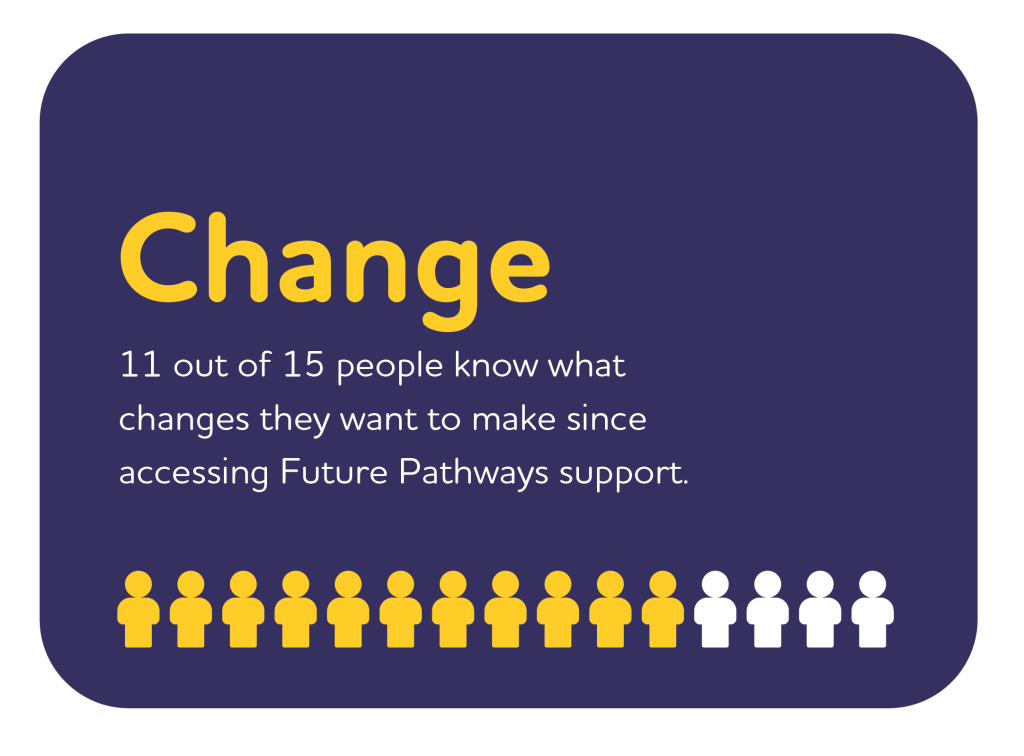
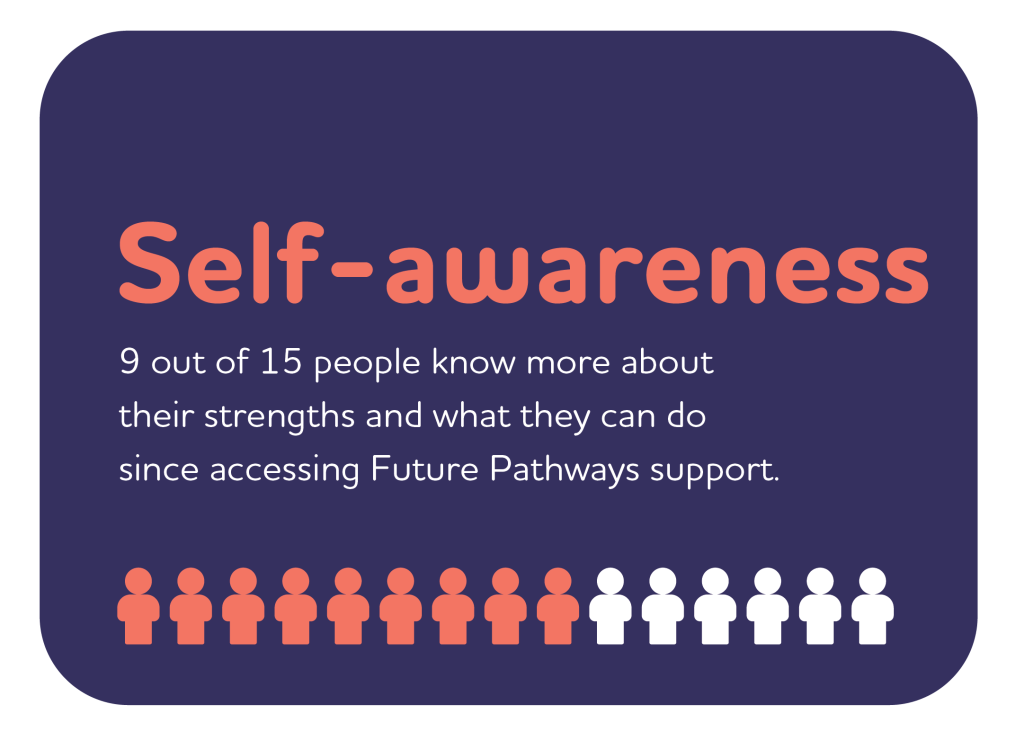
We recognise that support can and should adapt and evolve according to people’s own journey. Our service model’s in-built flexibility allows support – and its accompanying impact – to evolve over the course of someone’s journey with Future Pathways. As such, we find that everyone’s experience at Future Pathways is unique to them too. While there may be common themes, the impact is different for everyone as each person is supported to find their own pathway to change.
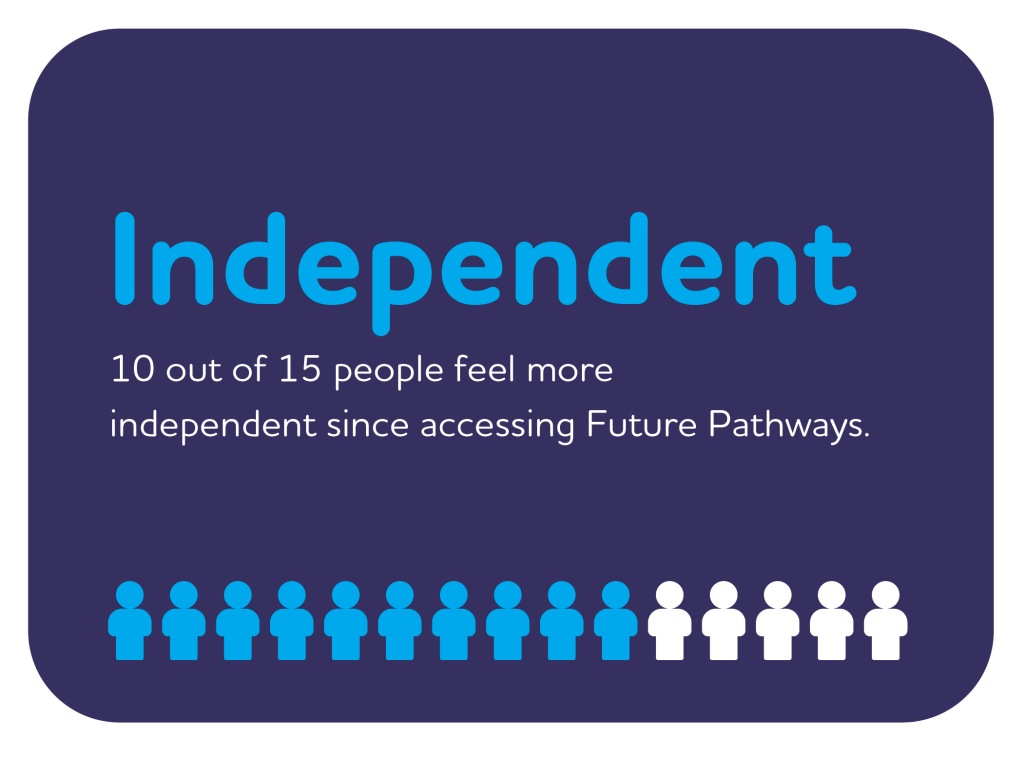
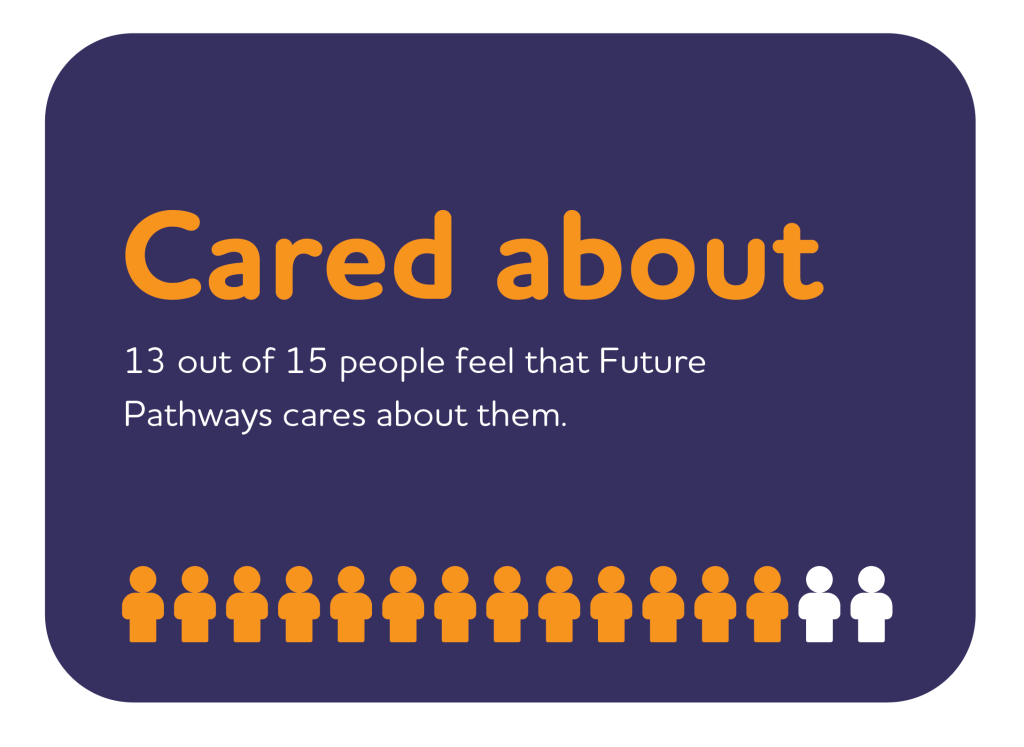
Our impact report highlights how our approach can enhance support. By providing wide-ranging support that is tailored to each person’s circumstances, we are better able to offer support that is right for each person. In addition, we recognise that having choice and feeling empowered is a vital part of the journey – it can lead to increased sense of self-efficacy, independence and feelings of ownership over one’s own life.
Throughout this report, we see that a relational approach is essential. By prioritising relationships and taking a trauma informed approach, we create partnerships that feel safe and trusting in which people feel cared about, understood and valued.
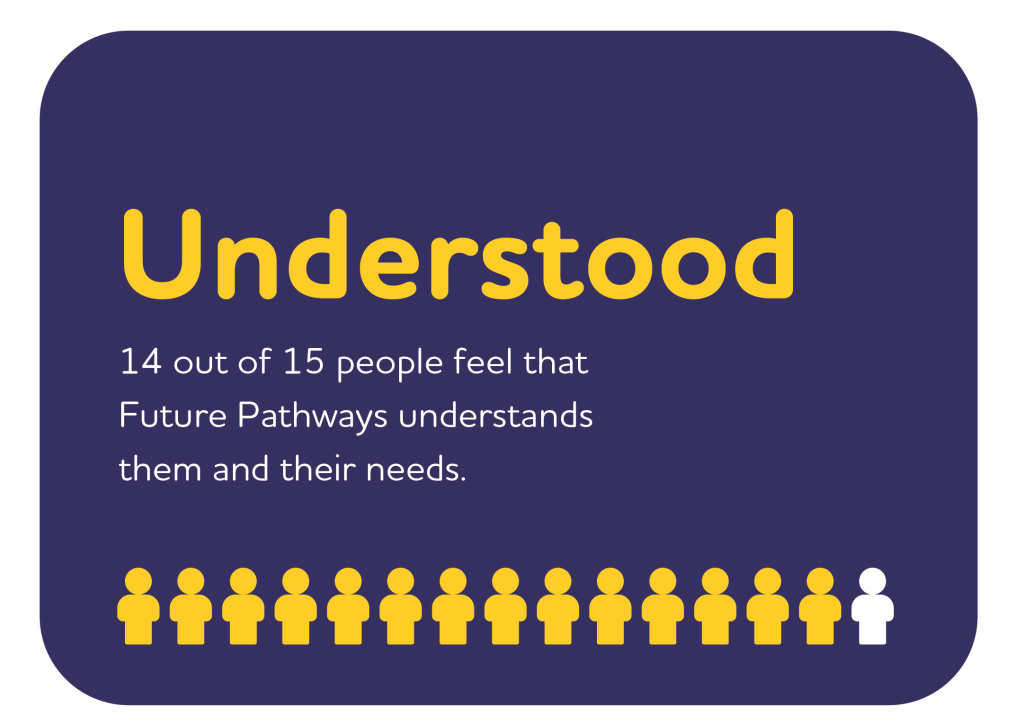
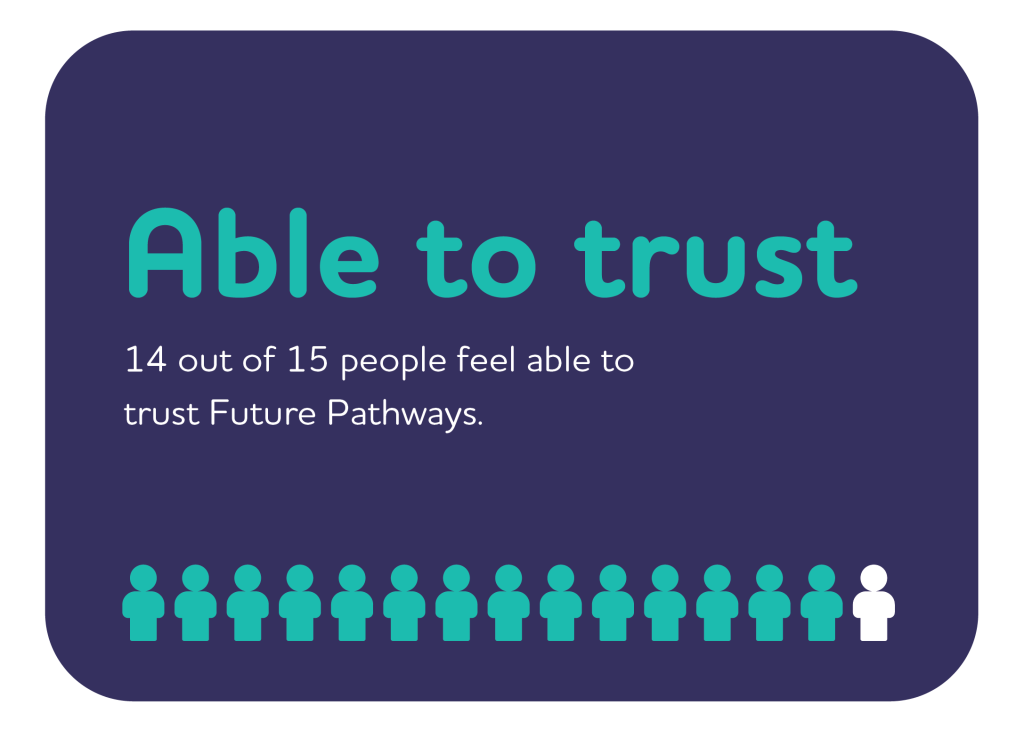
This approach extends to everyone we work with: people we support, our staff, our Delivery Partners and providers, and the wider sector. Indeed, a relational approach can itself enhance support. Our collaborative work with Delivery Partners and existing services can encourage others to adapt their approach and respond flexibly to people’s needs, ensuring people can access the support that is right for them and which they have a right to access.
We look forward to the next steps of our learning journey. Data-driven improvement gives us an opportunity to see how we can continue to make a difference, map our influence and, crucially, further improve the support we provide.
“Future Pathways has been committed to learning about our impact since we launched in 2016. Like our service, our evaluation has evolved over time. Throughout this journey, we have reflected continuously on our changing context, gradually refined our evaluation approach, and made improvements based on what we have learned from people registered with us. This iterative process has helped us develop a fuller, more nuanced understanding of our support and the difference we make. We hope that our learning continues to contribute towards the vision of the Alliance, that people registered with us can lead full, healthy and independent lives.”
Louise Hall, Impact and Evaluation Lead, Future Pathways
“Providing this feedback is helpful to me in allowing me to see the progress and I hope it helps Future Pathways to further continue the amazing work it does. Thanks for taking the time you have and dealing with my story in confidence and with empathy.”
Person supported by Future Pathways
“This report shows the value of taking time to build a relationship with a person and across services, and how this can enable life to feel more purposeful. This is particularly significant given the multiple inequalities that can be experienced by people registered with us. We are committed to sharing our learning more widely as we make meaningful changes in our own support and seek to capture when other services do the same.”
Flora Henderson, Alliance Manager, In Care Survivors Alliance
